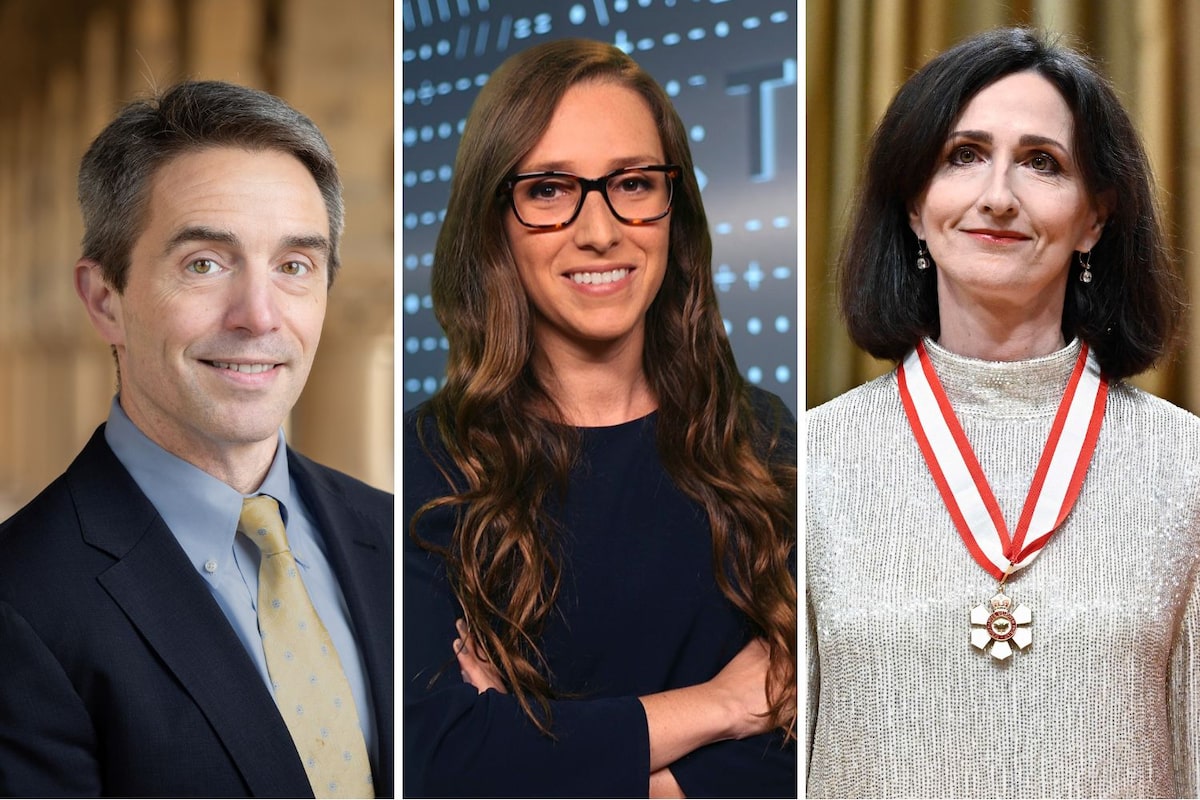From L-R: Mark Duggan, professor of economics at Stanford University, MIT economist Jacquelyn Pless and Canadian-born MIT astrophysicist Sara Seager.Supplied
Three prominent U.S. scholars are moving to the University of Toronto, as the school embarks on a wave of talent attraction spurred in part by upheaval in the postsecondary sector in the United States.
The new hires include a husband-and-wife team of economists, Mark Duggan from Stanford University and Jacquelyn Pless from Massachusetts Institute of Technology, as well as Canadian-born astrophysicist Sara Seager, also currently at MIT.
At the same time, U of T is also announcing a $24-million plan to recruit top young scholars from around the world as well as funding to boost the early career trajectory of the university’s own researchers.
The university plans to hire 100 postdoctoral fellows across a range of disciplines over two years, providing combined salary and research funding support of about $100,000 for each.
The U of T initiative announced Wednesday will be funded by the university and is separate from funding packages announced in last week’s federal budget. The Liberal government led by Prime Minister Mark Carney has pledged $1.7-billion to attract top international researchers over the next decade or more, with $1-billion earmarked for recruitment of senior researchers.
Federal Budget 2025: Postsecondary schools cheer funds for talent, bemoan foreign student caps
Joshua Barker, a vice-provost and dean of the School of Graduate Studies, said recent geopolitical shifts have put U of T in a favourable recruiting position. Hiring a cohort of talented, young scholars allows the university to get to know them and their work over an extended period at a relatively low cost, Prof. Barker said. The expectation is that some will eventually be hired as permanent faculty.
“This gives us a span of time to work with people, see where the dust is settling globally and then position ourselves for that future,” Prof. Barker said.
Attempts by the administration of Donald Trump to slash funding to research agencies and place pressure on leading universities has countries around the world looking to lure talented scientists away from the U.S.
As Trump cuts university research, American scholars look north
The three new faculty members announced on Wednesday expressed a range of motives for coming to U of T, many of which don’t relate to politics in the United States.
For Prof. Seager, Toronto is familiar territory. She grew up in the city and credits a childhood camping trip under dark Ontario skies as the start of her fascination with the universe.
A faculty member at MIT since 2007, she has built her career trying to understand conditions on planets of other solar systems beyond our own and the potential for finding life on some of them. Over the past decade, she has played a prominent role in a NASA mission to discover such planets around nearby stars.
Under the current U.S. administration, NASA and the U.S. National Science Foundation are facing steep budget cuts, but Prof. Seager said her recent work is funded primarily through private money. The decision to come to Toronto was chiefly motivated by other factors including a strong offer of support for her program from U of T and the Canadian Institute for Theoretical Astrophysics.
“It’s going to thrive in Toronto because it’s so interdisciplinary,” said Prof. Seager, who plans to arrive in Toronto next fall.
Meet Canada’s next generation of researchers
For Prof. Duggan, an economist at Stanford University who served on the White House Council of Economic Advisers in the Obama era, what attracted him to Toronto was the opportunity to teach at the same institution as his wife. He and Prof. Pless, an MIT economist, have been living at opposite ends of the continent. Although both said they are concerned with U.S. politics and the situation facing universities, they said it was not a core driver of their decision to come to Canada.
Prof. Pless will take up a post as professor of strategic management at the Rotman School of Management.
“The way I see Toronto and Canada more broadly is that it’s really a great place to study how innovation can solve major societal challenges like climate change,” she said. She and her husband will move to Toronto next summer.
Prof. Duggan will be the director of the Munk School of Global Affairs and Public Policy.
“I’m a huge believer in the ability of research and what’s happening in universities to make a practical, positive impact in the world,” he said. “What better time for two nerdy economists to come to Canada than when the Prime Minister is an economist?”

